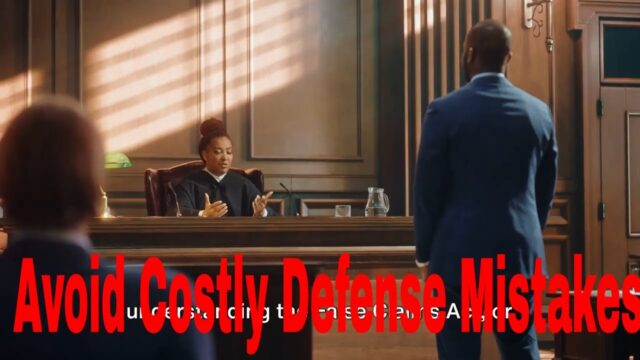Procurement Integrity Act Lawyers
Procurement Integrity Act (PIA) Defense Lawyers Helping You Avoid Costly Fines and Criminal Jail Time When It Comes to Ethics in Government Contracting. We Bring Over 20 Years of Federal Procurement Experience – We Help Clients Nationwide and Overseas.
LOCATIONS: WASHINGTON DC, DENVER COLORADO, DUBAI, MIAMI FLORIDA, LOS ANGELES, CALIFORNIA
US AND INTERNATIONAL REACH
 Are you a federal government construction contractor, government employee, or subcontractor who is under the Procurement Integrity Act investigation or facing criminal charges for procurement fraud under the Procurement Integrity Act, 41 USC 423?
Are you a federal government construction contractor, government employee, or subcontractor who is under the Procurement Integrity Act investigation or facing criminal charges for procurement fraud under the Procurement Integrity Act, 41 USC 423?
If you are under a Procurement Integrity Act or False Claims Act Investigation, have been served with a Civil Investigative Demand or Subpoena, Watson & Associates, LLC PIA Lawyers can help.
41 USC 423. Restrictions on disclosing and obtaining contractor bid or proposal information or source selection information
(a) Prohibition on disclosing procurement information
(1) A person described in paragraph (2) shall not, other than as provided by law, knowingly disclose contractor bid or proposal information or source selection information before the award of a Federal agency procurement contract to which the information relates
(2) Paragraph (1) applies to any person who-
(A) is a present or former official of the United States, or a person who is acting or has acted for or on behalf of, or who is advising or has advised the United States with respect to, a Federal agency procurement; and
(B) by virtue of that office, employment, or relationship has or had access to contractor bid or proposal information or source selection information.
What You Need to Know
- The first approach to any case is to asses whether (a) your fit the criteria or intent of the statute and (2) whether you “knowingly disclosed contractor bid or proposal information”. Intent or “knowingly” where the government may have a difficult time proving its case. This is where our high-level procurement integrity attorneys come in.
-
If you are an “outsider”, you cannot, other than as provided by law, knowingly obtain contractor bid or proposal information or source selection information before the award of a Federal agency procurement contract to which the information relates.
- If federal investigators approach or try to speak with you, you have to cooperate. However, you do not want to speak to them without an attorney
- You have a constitutional right NOT to incriminate yourself. Once you waive it ( by agreeing to speak or disclose evidence without legal advice from an attorney, you cannot claim it was a mistake if the disclosure is used against you in a criminal trial.
What are the Penalties for Violating the Procurement Integrity Act?
Penalties and administrative actions
Criminal penalties: Whoever engages in conduct constituting a violation of subsection (a) or (b) of this section for the purpose of either-
(A) exchanging the information covered by such subsection for anything of value, or
(B) obtaining or giving anyone a competitive advantage in the award of a Federal agency procurement contract,
shall be imprisoned for not more than 5 years or fined as provided under title 18, or both.
Civil penalties: The Attorney General may bring a civil action in an appropriate United States district court against any person who engages in conduct constituting a violation of subsection (a), (b), (c), or (d) of this section. Upon proof of such conduct by a preponderance of the evidence, the person is subject to a civil penalty. An individual who engages in such conduct is subject to a civil penalty of not more than $50,000 for each violation plus twice the amount of compensation which the individual received or offered for the prohibited conduct. An organization that engages in such conduct is subject to a civil penalty of not more than $500,000 for each violation plus twice the amount of compensation which the organization received or offered for the prohibited conduct.
Administrative actions: (A) If a Federal agency receives information that a contractor or a person has engaged in conduct constituting a violation of subsection (a), (b), (c), or (d) of this section, the Federal agency shall consider taking one or more of the following actions, as appropriate:
(i) Cancellation of the Federal agency procurement, if a contract has not yet been awarded.
(ii) Rescission of a contract with respect to which-
(I) the contractor or someone acting for the contractor has been convicted for an offense punishable under paragraph (1), or
(II) the head of the agency that awarded the contract has determined, based upon a preponderance of the evidence, that the contractor or someone acting for the contractor has engaged in conduct constituting such an offense.
(iii) Initiation of suspension or debarment proceedings for the protection of the Government in accordance with procedures in the Federal Acquisition Regulation.
(iv) Initiation of adverse personnel action, pursuant to the procedures in chapter 75 of Title 5 or other applicable law or regulation.
(B) If a Federal agency rescinds a contract pursuant to subparagraph (A)(ii), the United States is entitled to recover, in addition to any penalty prescribed by law, the amount expended under the contract.
(C) For purposes of any suspension or debarment proceedings initiated pursuant to subparagraph (A)(iii), engaging in conduct constituting an offense under subsection (a), (b), (c), or (d) of this section affects the present responsibility of a Government contractor or subcontractor.
We Handle Procurement Law Matters on a Daily Basis; We Understand the Rules
Our team of Procurement Integrity Act lawyers specializes in aggressively defending the rights of individuals and companies in these types of cases.
We understand the complexities of government investigations and can help you navigate the legal system to achieve the best possible outcome for your case.
We are dedicated to protecting your reputation, your livelihood, and your freedom. With our experience and expertise in the field of procurement fraud, you can trust that we will fight for your rights and defend your interests every step of the way.
Don’t wait any longer to get the legal representation you need. Our legal team has experienced federal procurement integrity violation attorneys who can help with civil investigative demands and False Claims Act cases.
Contact us today to schedule a consultation and start building your defense.
Types of PIA Cases We Handle
- Public procurement policy and controls
- Business ethics
- DOJ and OIG PIA investigations alleged PIA violations
- False Claims Act Procurement Integrity Act investigations
- Procurement fraud defense
- Foreign Corrupt Practices
- Anti-kickback Act prosecutions
- Kickbacks
- False claims and Qui Tam defense
- Help to respond to civil investigative demands CID
- Compliance with FAR and SBA regulations
AVOID JAIL TIME AND START A SOLID DEFENSE IN YOUR CASE – GET YOUR FREE DEFENSE CHECKLIST HERE
What is the Procurement Integrity Act?
The Procurement Integrity Act addresses the forbidden release of source selection information and or information about contractors’ proposals and bidding information. See 41 USC 423. Also see FAR 3.104-8. The PIA also addresses the conduction of former government employees who served on a procurement action or contract over $10 million in specific government positions.
The employee cannot serve as an employee or consultant to the contractor in question. PIA statutes monitor the federal procurement process and how government and contractor personnel conduct business.
The Procurement Integrity Act of 1988 is a federal law that aims to promote integrity, transparency, ethics in government contracting, and fairness in government procurement processes. The law applies to federal executive agencies and their employees and contractors and subcontractors who participate in federal procurement.
The Procurement Integrity Act, which is codified in 41 USC 423, establishes certain standards of conduct and requirements for government procurement officials, contractors, and subcontractors. The law prohibits certain activities that could compromise the integrity of the procurement process, including:
1. Disclosure of non-public information: Government procurement officials and employees are prohibited from disclosing non-public information about procurements to unauthorized individuals or companies.
2. Receipt of certain information: Government procurement officials and employees are prohibited from receiving certain information from contractors or subcontractors, such as advanced knowledge of their competitors’ bids.
3. Employment: Government procurement officials and employees are prohibited from accepting employment with a contractor or subcontractor who is involved in the same procurement for which the official or employee had significant responsibility.
4. Restrictions on post-government employment: Government procurement officials and employees are subject to certain restrictions on post-government employment with contractors or subcontractors who are involved in the same procurement for which the official or employee had significant responsibility.
5. Restrictions on contractor and subcontractor activities: Contractors and subcontractors who participate in federal procurement are subject to certain restrictions on their activities, such as attempting to obtain non-public information or offering employment to government officials or employees who are involved in the same procurement.
The PIA also establishes certain Procurement Integrity Act violations, including fines, imprisonment, and exclusion from future government contracts. The law is intended to promote a fair and transparent procurement process and to ensure that the government obtains the best value for taxpayer dollars.
When government employees or contractors have violated the Procurement Integrity Act is very fact-specific. Being involved in a government investigation can be very daunting and stressful. Contractors and personnel found to have violated Procurement Integrity law can find themselves losing the contract, subject to hefty civil fines on facing jail time.
Experienced Procurement Integrity Act Lawyers
The government contract defense and procurement fraud attorneys at Watson & Associates help individuals and contractors to defend against allegations of Federal Procurement Integrity law violations and Anti-kickback Act violations under 41 USC 423. See also FAR 3.104-8 Criminal and civil penalties, and further administrative remedies.
Whether you are subject to a federal investigation, facing possible criminal indictment before a Grand Jury, bidding on federal projects using strategic sourcing or needing help with procurement management policies and controls, our False claims and contractor criminal defense lawyers understand the landmines awaiting clients in the process.
Procurement Lawyers Understanding the Procurement Integrity Act violations can save you criminal liability and fines.
The Federal Procurement Policy Act 41 USC 423, was revised by Section 4304 of the National Defense Authorization Act for Fiscal Year 1996. Revisions to the Act became effective January 1, 1997 and focus on key points in the procurement process. The PIA also provides that “[a] person shall not, other than as provided by law, knowingly obtain contractor bid or proposal information or source selection information before the award of a Federal agency procurement contract to which the information relates.” 41 USC 423 (b). See also 41 U.S.C. §§ 2101-2107,.
Federal regulation and FAR 3.104-3(a) dictate that a contracting officer who receives or obtains information of possible Federal Procurement Integrity Act violations must determine if the possible violation has any impact on the pending award or selection of the contractor.
If the contracting officer concludes that a violation may impact the procurement, the contracting officer is required to report the matter to the head of the contracting activity (HCA). FAR 3.104-7(b).
The HCA must review the information and take appropriate action, which includes either:
- advising the contracting officer to proceed with the procurement;
- beginning an investigation;
- referring information to appropriate criminal investigative agencies;
- concluding that a violation occurred; or
- recommend to the agency head that a PIA violation has occurred and void or rescind the contract.
The Justice Acquisition Regulation (JAR) further directs the contracting officer to refer possible violations of the Federal Procurement Integrity Act prosecutions to the DOJ OIG. JAR sect. 2803.104-10.
Does Receiving a Government Estimate Fit Within PIA Definition of “Source Selection Information?
In the case of CLC Construction Company, ASBCA No. 59110, the court found that this estimate does not fit within the definition of “source selection information” set forth in PIA. The court reasoned that because the plain language of the statutory text of § 2107(a) of the PIA, which includes express definitions of “source selection information” does not include the government estimate, then this information does not apply in procurement law. See als0 United States v. Bowling, 108 F. Supp. 3d 343, 348 (E.D.N.C. 2015).
41 USC 423 Defense and Help For Federal Employees in the Procurement Process
Under the Procurement Integrity Act, Federal employees who are involved in federal contracting procurements, strategic sourcing, and the administration of procurements over $100,000 must report contacts with bidders or offerors regarding future employment to their supervisors. Under the Procurement Integrity Act 41 USC 423, they must also disqualify themselves from further participation if they do not immediately reject the contact.
Government contractors must avoid gaining sensitive information from procurement officials since it can create a more advantageous opportunity for your company. The Washington, DC government contracts attorneys at Watson & Associates can help with PIA Violations and Conflicts of Interest by the government.
Why Choose Watson & Associates, LLC for Government Contractor Federal Criminal Defense Cases?
FAR 3.104-8 Criminal and Civil Penalties, and Allowable Administrative Remedies
IAW FAR 3.104-8 on Acquisition.gov Criminal and civil penalties, and administrative remedies, may apply to conduct that violates 41 U.S.C. chapter 21 (see 3.104-3). See 33.102(f) for special rules regarding bid protests. See 3.104-7 for administrative remedies relating to contracts.
(a) An official who knowingly fails to comply with the requirements of 3.104-3 is subject to the penalties and administrative action set forth in 41 U.S.C. 2105.
(b) An offeror who engages in employment discussion with an official subject to the restrictions of 3.104-3, knowing that the official has not complied with 3.104-3(c)(1), is subject to the criminal, civil, or administrative penalties set forth in 41 U.S.C. 2105.
(c) An official who refuses to terminate employment discussions (see 3.104-5) may be subject to agency administrative actions under 5 CFR 2635.604(d) if the official’s disqualification from participation in a particular procurement interferes substantially with the individual’s ability to perform assigned duties.
Call Our Procurement Integrity Act Defense Lawyers
Please contact the government contract defense lawyers at Watson & Associates, LLC regarding any legal matter related to the Federal Procurement Integrity Act PIA violations under 41 USC 423, strategic sourcing or Anti kickback Act on a federal government contracts project. Our Procurement Integrity Act lawyers can be reached toll-free at 866-601-5518. Speak directly to Theodore Watson.




